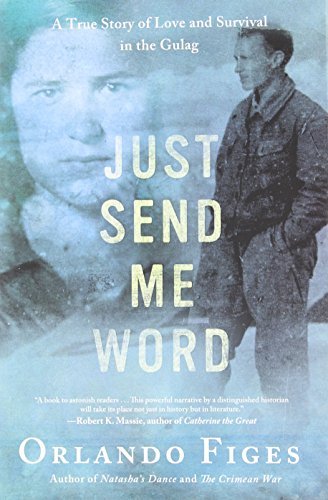What do you think?
Rate this book


Orlando Figes, "the great storyteller of modern Russian historians" (Financial Times), draws on Lev and Sveta's letters as well as KGB archives and recent interviews to brilliantly reconstruct the broader world in which their story unfolded. With the powerful narrative drive of a novel, Just Send Me Word reveals a passion and endurance that triumphed over the tragic forces of history.
352 pages, Hardcover
First published January 1, 2012